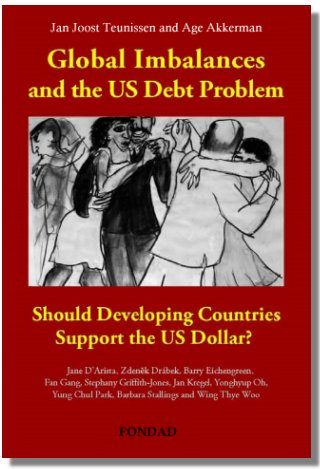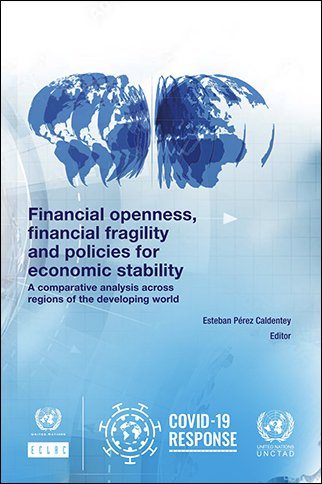Publisher: Third World Network Year: 2023 No. of pages: 42 Download now About the Book…
Global Imbalances and the US Debt Problem: Should Developing Countries Support the US Dollar? Edited by Jan Joost Teunissen and Age Akkerman

Publisher: FONDAD
Contributing authors: Jane D’Arista, Zdenek Drábek, Barry Eichengreen, Fan Gang, Stephany Griffith-Jones, Jan Kregel, Yonghyup Oh, Yung Chul Park, Barbara Stallings, Jan Joost Teunissen and Wing Thye Woo\
ISBN-10: 90-74208-28-2
ISBN-13: 978-90-74208-28-4
About the Book
The growing and staggering foreign debt of the United States is one of the pressing issues of our days. So is the problem of large global economic imbalances. This book analyses how these two problems are related, how they should be addressed and by whom. In assessing the risks of a dramatic unwinding of US debt and global imbalances, the negative impact on developing countries usually receives little attention. This book is different – it focuses primarily on developing countries.
The contributing authors look at the functioning of the world economic system as a whole and at the policies pursued in both the developed and developing regions of the world. They urge the US to reduce its deficits, and suggest what developing countries and the international community can do to lessen the vulnerability of developing countries and contribute to a resolution of the US debt and global imbalances problems.
According to some of the contributors, the fundamental problem lies in a global monetary system that maintains the US dollar as the key currency. This allows the US to run high deficits and it prolongs a situation in which capital flows “uphill” – from poor countries to the richest country of the world. They see a reform of the international monetary system that ends the hegemony of the dollar as the best solution. Other contributors observe that as long as both Asia and Europe continue to use positive net exports to support their domestic policy goals, they will continue to finance US deficits.
The book devotes considerable attention to China’s role in the global imbalance problem. It investigates whether there are good reasons for placing so much blame on China, and concludes that the focus on the bilateral balance between China and the United States is exaggerated and misleading.
Contents
- Should Developing Countries Support the US Dollar? By Way of Introduction
- Global Imbalances and Emerging Markets
- Global Imbalances and Latin America: A Comment on Eichengreen and Park
- The Dilemmas and Dangers of the Build-Up of US Debt: Proposals for Policy Responses
- Currency Asymmetry, Global Imbalances, and Rethinking of the International Currency System
- China’s Macroeconomic Imbalances: The Liquidity Tango Mechanism
- How Effective Is Monetary Policy in China? A Comment on Woo’s “Inflationary Tango”
- Asian Monetary Coordination and Global Imbalances
- Understanding Imbalances in a Globalised International Economic System
- Policy Recommendations for the US, Europe and Asia: By Way of Epilogue



